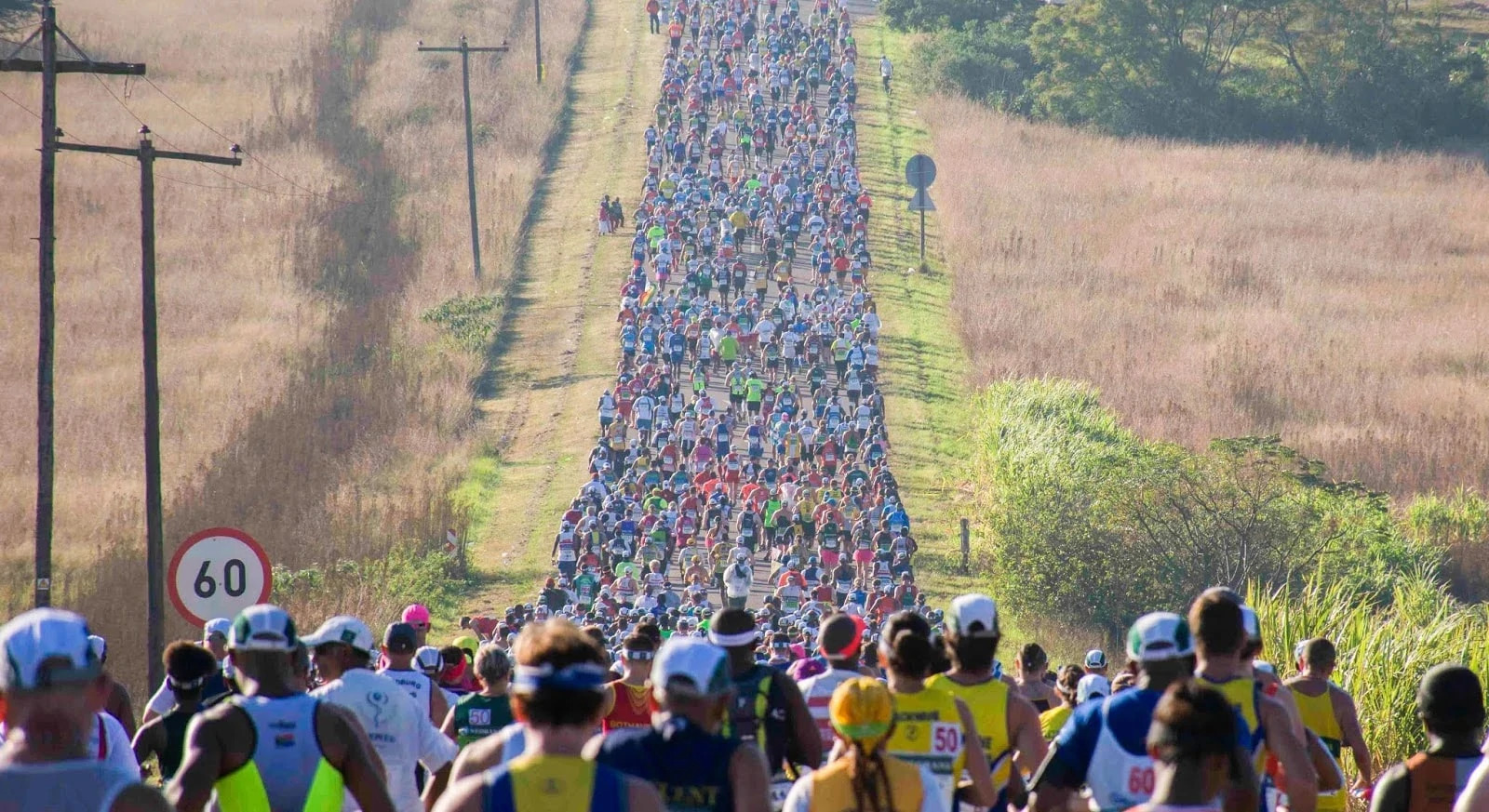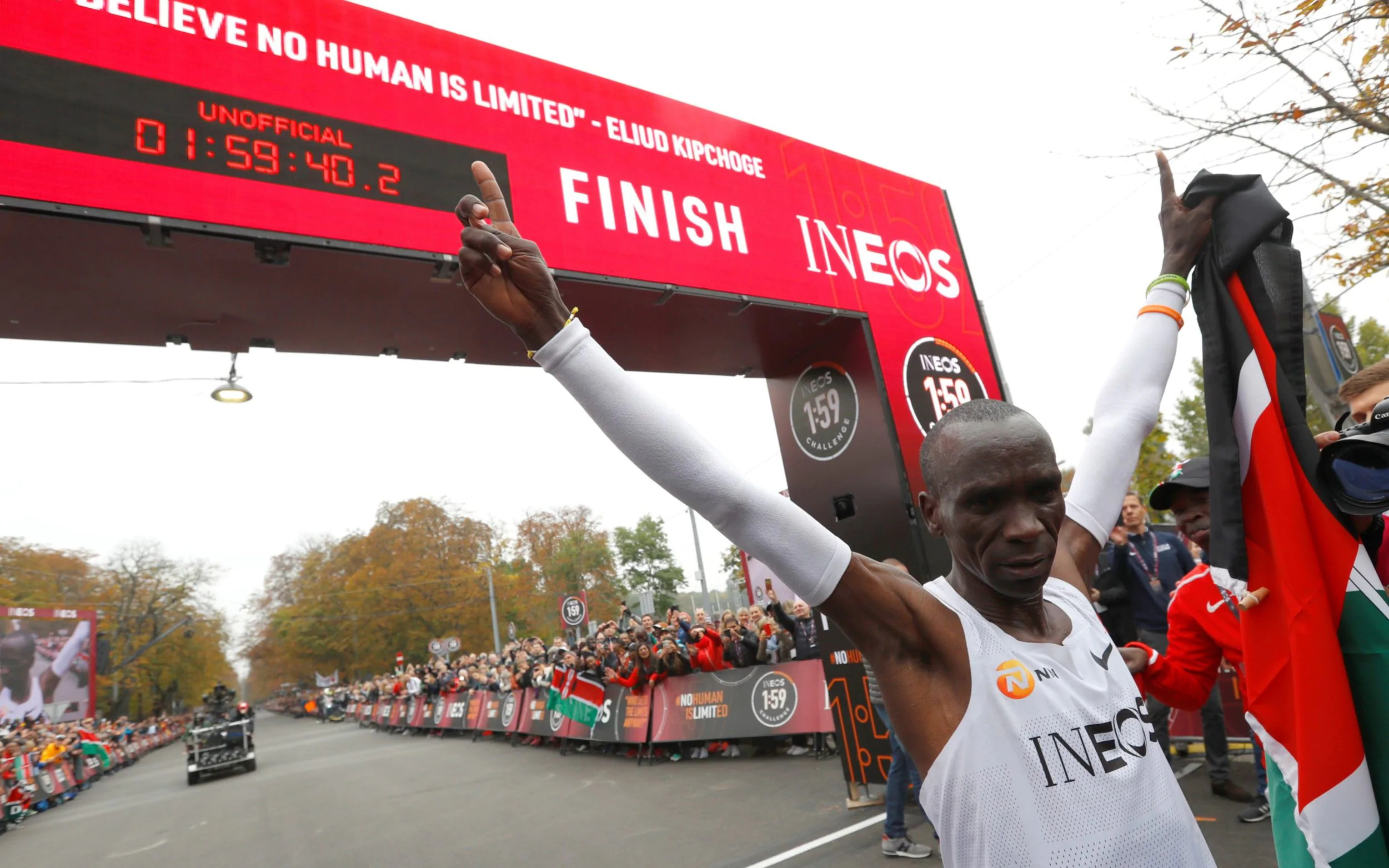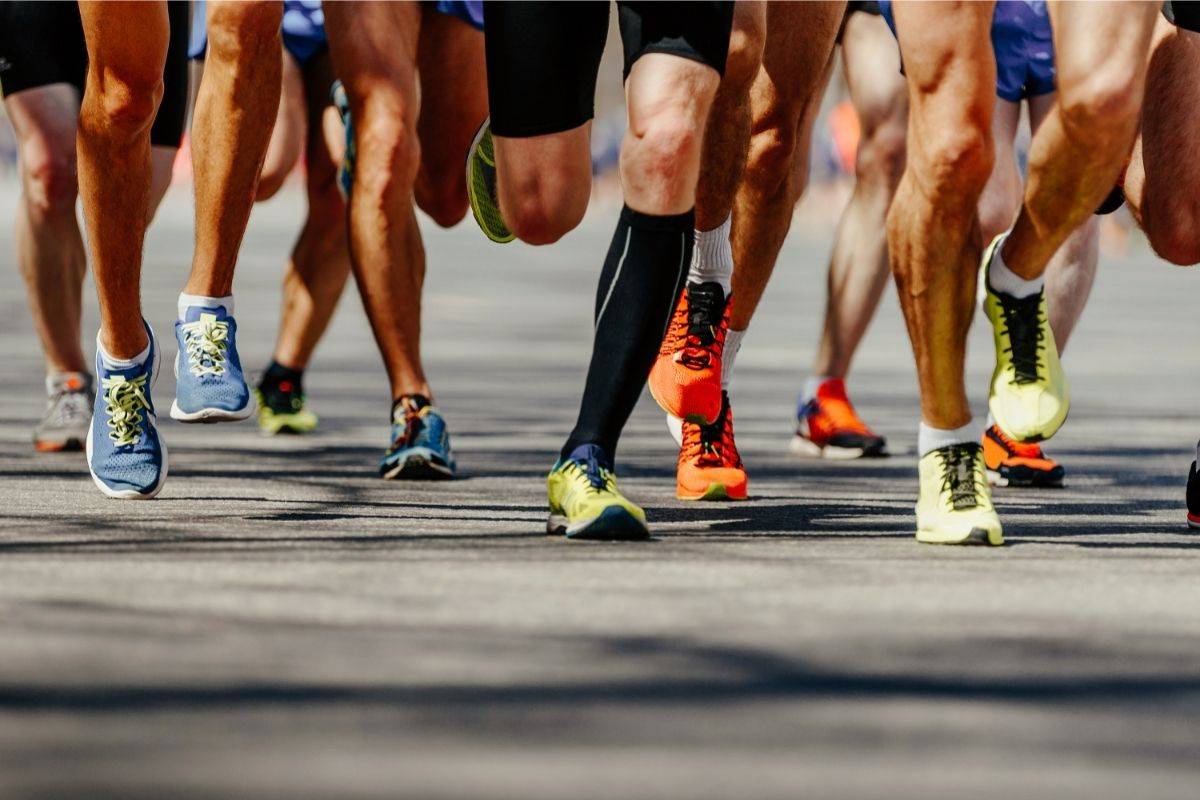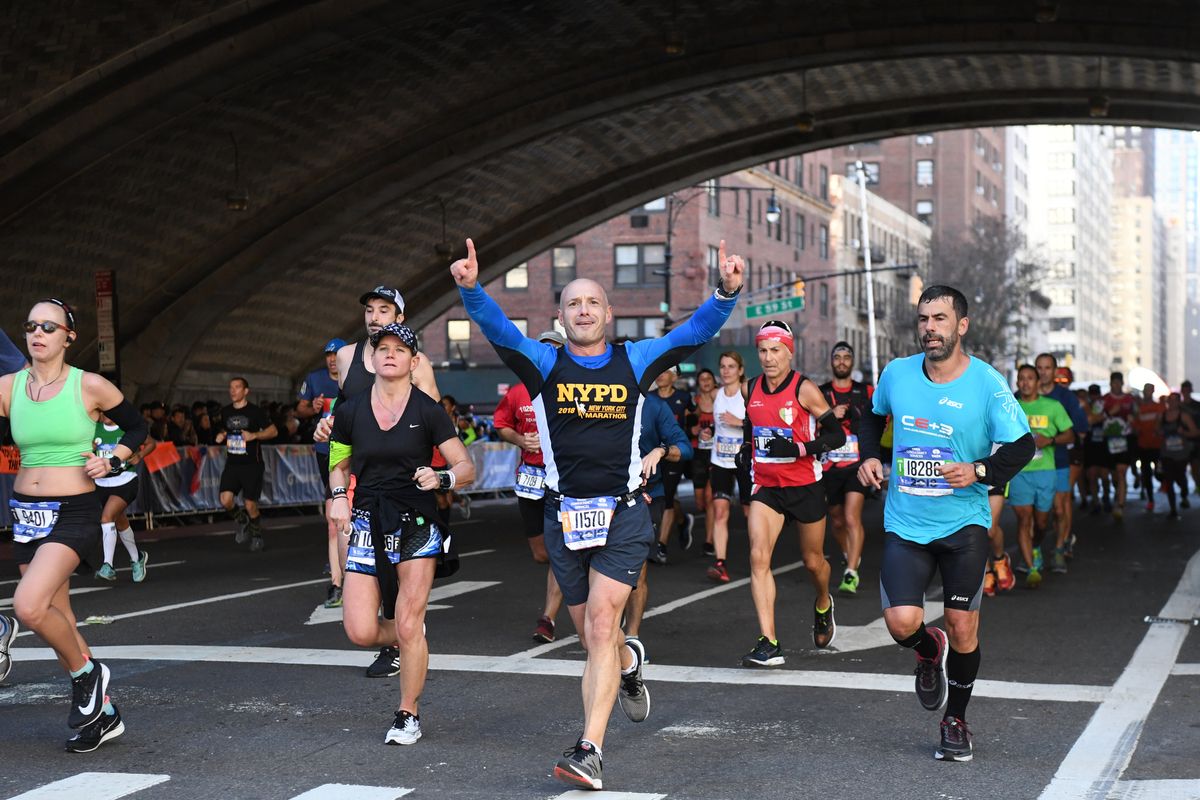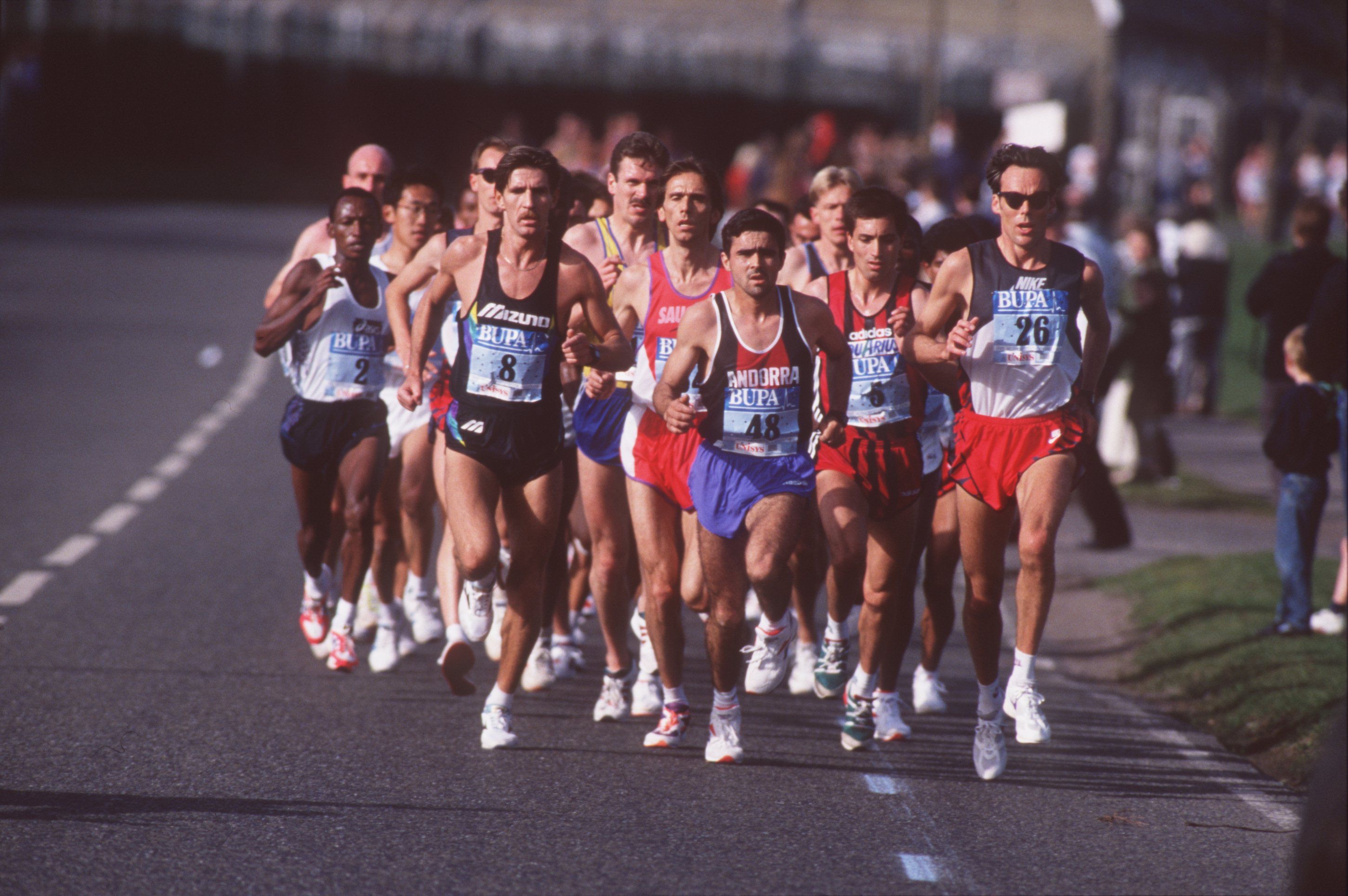

Featured
What Is The Marathon Distance
Modified: January 22, 2024
Discover the marathon distance and why it is often featured as the ultimate running challenge. Unlock the secrets behind this iconic race length and join the ranks of passionate marathon runners.
Introduction
Running a marathon is a true test of endurance, mental strength, and physical ability. It is a challenging race that spans a distance of 26.2 miles or 42.195 kilometers. The marathon has gained immense popularity over the years, with thousands of participants taking part in races held around the world.
The marathon distance holds a special place in the world of running, with a rich history and a symbolic significance. It represents the ultimate goal for many runners, pushing them to their limits and celebrating their achievements. Whether you are a professional athlete, a seasoned runner, or a beginner looking to challenge yourself, understanding the marathon distance is essential.
In this article, we will delve into the origins of the marathon distance, its significance, and the training required to conquer this feat. We will also explore famous marathons around the globe, notable records and achievements, and why the marathon continues to captivate the hearts of runners worldwide.
So, lace up your running shoes and join us as we embark on a journey to discover the world of the marathon distance.
Definition of the Marathon Distance
The marathon distance is a standardized race distance in the sport of running. It measures exactly 26.2 miles or 42.195 kilometers. The origins of this specific distance can be traced back to the 1908 London Olympics, where an additional 385 yards were added to the original 26-mile course so that the race could start at Windsor Castle and end in front of the royal box at the Olympic Stadium.
The marathon is the longest of the widely recognized road running distances and requires a great deal of physical and mental endurance. It is often regarded as the ultimate challenge for runners, pushing them to their limits both physically and mentally.
The marathon distance is unique in that it requires careful pacing and strategic race execution. Runners must conserve their energy for the entirety of the race, as hitting the wall or running out of energy prematurely can significantly hinder performance.
Completing a marathon is an impressive achievement, regardless of the time it takes. It is a testament to the runner’s dedication, commitment, and perseverance. Many runners set personal goals of completing their first marathon, and a growing number of people around the world have taken up the challenge. The marathon distance has become a symbol of personal triumph and immense satisfaction.
While the official distance of the marathon remains consistent across races, it’s worth noting that there are various types of marathons, including road marathons, trail marathons, and virtual marathons. These different types of races provide runners with diverse experiences and challenges, adding to the versatility and excitement of the marathon distance.
Whether you are an experienced runner or a beginner, the marathon distance represents an incredible accomplishment and an opportunity for personal growth. It exemplifies the power of determination, discipline, and persistence, making it a truly extraordinary endurance event in the world of athletics.
History of the Marathon Distance
The history of the marathon distance dates back to ancient Greece, where the legend of the famous run of the Greek soldier Pheidippides is said to have taken place. According to the popular tale, during the Battle of Marathon in 490 BCE, Pheidippides was tasked with delivering a message of victory to the city of Athens. He ran approximately 26 miles from the battlefield to Athens, proclaiming, “We have won,” before collapsing and dying from exhaustion.
Inspired by this legendary feat, the marathon race was born. The first organized marathon race occurred during the inaugural modern Olympic Games in Athens in 1896. The race followed the traditional route from the town of Marathon to the Olympic Stadium in Athens, covering a distance of approximately 25 miles.
However, the official distance of the marathon was standardized at 26.2 miles during the 1908 London Olympics. The race director at the time, faced with the challenge of starting the race at Windsor Castle and finishing in front of the royal box at the Olympic Stadium, added an additional 385 yards to the course. Thus, the modern marathon distance of 26.2 miles was established.
Since then, marathons have grown in popularity and have become a staple in the athletic world. The Boston Marathon, which first took place in 1897, is considered the oldest annual marathon, attracting runners from around the globe.
Over the years, marathons have evolved to become more inclusive, with races for various age groups, skill levels, and causes. Major marathons such as the New York City Marathon, Chicago Marathon, and Berlin Marathon have become iconic events in the running calendar, attracting elite athletes and enthusiastic amateurs alike.
The marathon distance has also gained recognition as an Olympic event, with both men and women competing at the highest level. The marathon has showcased incredible performances and moments of triumph, solidifying its place as one of the most prestigious races in all of sports.
In recent times, the popularity of marathons has soared, with millions of individuals of all ages and backgrounds taking up the challenge. The marathon has become a symbol of personal achievement, self-improvement, and perseverance. It represents the human spirit’s capacity to overcome adversity and conquer seemingly insurmountable challenges.
As the marathon continues to evolve, it remains deeply rooted in its historical legacy, commemorating the bravery of Pheidippides and honoring the endurance of the ancient Greeks. Today, the marathon distance stands as a testament to the remarkable human endeavor and serves as an inspiration for countless individuals seeking to push their limits and achieve greatness.
Significance of the Marathon Distance
The marathon distance carries immense significance, both in the world of running and beyond. It represents a metaphorical and physical journey that embodies determination, perseverance, and personal triumph. Here are some of the key reasons why the marathon distance holds such importance:
1. Historical and Cultural Symbolism: The marathon distance pays homage to the legendary run of Pheidippides and the spirit of the ancient Greeks. It represents a connection between the modern world and the historic roots of athletic achievement.
2. Ultimate Test of Endurance: The marathon is widely recognized as the ultimate test of physical and mental endurance. Completing the grueling 26.2 miles requires months of training, discipline, and resilience. It pushes runners to their limits and demands a deep level of commitment.
3. Personal Accomplishment: Crossing the finish line of a marathon is an incredible personal accomplishment. It signifies overcoming obstacles and achieving a goal that once seemed impossible. The sense of satisfaction and pride that comes with finishing a marathon is unparalleled.
4. Inspiration and Motivation: The marathon distance serves as a powerful source of inspiration and motivation. Witnessing the dedication and determination of marathon runners can ignite a fire within others to set goals, challenge themselves, and strive for greatness in their own lives.
5. Community and Camaraderie: Marathons bring together people from all walks of life who share a common goal – to conquer the distance. The sense of camaraderie and support among participants creates a unique and uplifting atmosphere. Runners encourage each other, cheer on fellow competitors, and celebrate collective achievements.
6. Raising Awareness and Charity: Many marathons serve as platforms for raising awareness and funds for important causes. Runners often participate to support charities, making a positive impact on society. The marathon distance becomes a vehicle for social change and philanthropy.
7. Physical and Mental Health Benefits: Training for a marathon involves regular exercise, proper nutrition, and a focus on well-being. The journey towards completing a marathon promotes physical fitness, mental clarity, and overall health. The discipline required for marathon training often leads to positive lifestyle changes.
8. Global Community: The marathon distance has transcended borders and cultures, uniting people from around the world. Runners often travel to different countries to participate in iconic marathons, experiencing new cultures while sharing a common passion for running.
The marathon distance’s significance extends beyond the race itself. It represents the human spirit’s capacity to set goals, overcome challenges, and achieve greatness. Whether you are a participant or a spectator, the marathon inspires us all to push beyond our limits and embrace the journey of self-discovery.
Training for a Marathon
Training for a marathon is an intensive and structured process that requires dedication, discipline, and careful planning. Whether you are a seasoned runner or a beginner, following a comprehensive training program is crucial to building endurance, preventing injuries, and achieving your goals. Here are some key elements to consider when training for a marathon:
1. Build a Base: Before diving into marathon-specific training, it is important to establish a solid running base. This involves gradually increasing your weekly mileage and getting comfortable with longer runs. Start with shorter distances and gradually build up over several weeks or months.
2. Set Realistic Goals: Define your goals for the marathon, whether it’s to finish within a specific time or simply complete the race. Having clear goals will shape your training plan and help you stay motivated throughout the process.
3. Follow a Training Plan: Find a reputable marathon training plan that suits your fitness level and goals. These plans typically consist of a combination of long runs, speed workouts, tempo runs, and recovery runs. They incorporate progressive mileage and periodization to ensure gradual improvement and reduce the risk of injury.
4. Consistency is Key: Consistency is crucial in marathon training. Aim to run regularly, following your training plan as closely as possible. Maintain a consistent schedule, incorporating rest days and cross-training activities to allow for adequate recovery and injury prevention.
5. Fuel Your Body: Proper nutrition is essential for marathon training. Fuel your body with a balanced diet consisting of carbohydrates, proteins, healthy fats, and ample hydration. Pay attention to pre- and post-run nutrition, as well as fueling during long runs, to maintain energy levels and aid in recovery.
6. Listen to Your Body: Pay attention to your body’s cues and adjust your training accordingly. If you feel fatigued or experience pain, give yourself time to rest and recover. Cross-training activities such as swimming or cycling can help maintain fitness while reducing the impact on your joints and muscles.
7. Gradually Increase Mileage and Intensity: Gradually increase your weekly mileage and the intensity of your workouts over time. This progressive approach allows your body to adapt to the physical demands of marathon training, reducing the risk of overuse injuries.
8. Mental Preparation: Marathon training is not just physical; it also requires mental preparation. Cultivate a positive mindset, stay focused on your goals, and develop strategies to overcome mental obstacles during long runs and races. Visualization techniques and positive affirmations can help maintain motivation and push through challenging moments.
Remember, every runner’s journey is unique, and it’s important to listen to your body and adapt your training plan as needed. Seek guidance from experienced coaches or trainers if possible, and surround yourself with a supportive community of fellow runners. With proper training and a determined mindset, you can conquer the marathon distance and achieve a remarkable personal accomplishment.
Famous Marathons around the World
Marathons are held in every corner of the world, attracting thousands of participants and spectators. These races offer unique experiences, stunning scenery, and a chance to immerse oneself in the local culture. Here are some of the most famous marathons held around the world:
1. Boston Marathon (Boston, United States): Considered one of the most prestigious marathons, the Boston Marathon is the world’s oldest annual marathon and attracts elite runners from around the globe. With its challenging course and rich history, this race is a symbol of endurance and resilience.
2. Berlin Marathon (Berlin, Germany): Known for its fast and flat course, the Berlin Marathon is a favorite among elite runners aiming for personal bests and world records. The race takes participants through the historic streets of Berlin, offering a glimpse of iconic landmarks such as Brandenburg Gate.
3. London Marathon (London, United Kingdom): The London Marathon is one of the largest and most renowned marathons in the world. The race showcases the vibrant city, with participants running past famous landmarks like the Tower Bridge and Buckingham Palace. The event attracts runners of all abilities and is known for its festive atmosphere.
4. New York City Marathon (New York, United States): The New York City Marathon is a true bucket list race for many runners. It takes participants on a 26.2-mile journey through the five boroughs of New York City, offering views of iconic sights like Central Park and Times Square. The race attracts a diverse field of runners from across the globe.
5. Tokyo Marathon (Tokyo, Japan): As one of the World Marathon Majors, the Tokyo Marathon is a highly sought-after race among avid runners. The course winds through the bustling streets of Tokyo, blending modern architecture with traditional landmarks. The race showcases Japanese culture and hospitality.
6. Chicago Marathon (Chicago, United States): Known for its flat and fast course, the Chicago Marathon is a favorite among both elite and amateur runners. The race takes participants through the vibrant neighborhoods of Chicago, offering breathtaking views of the city skyline and Lake Michigan.
7. Paris Marathon (Paris, France): The Paris Marathon combines the beauty of the city’s architecture, renowned landmarks, and the spirit of French culture. Participants run through the Champs-Élysées, past the Eiffel Tower, and finish near the iconic Avenue Foch. The race attracts an international field of runners.
8. Great Wall Marathon (Huangyaguan, China): Offering a unique and challenging experience, the Great Wall Marathon takes participants on a course that includes sections of the iconic Great Wall of China. With steep ascents and descents, this race is as much about conquering the historical marvel as it is about the distance.
These are just a few examples of the famous marathons held worldwide. Other notable races include the Marine Corps Marathon in Washington, D.C., the Honolulu Marathon in Hawaii, and the Two Oceans Marathon in Cape Town, South Africa. Each marathon offers its own distinct character, scenery, and community spirit, creating unforgettable experiences for participants and spectators alike.
Marathon Records and Achievements
Throughout the history of marathons, remarkable records and achievements have been set by exceptional athletes. These records serve as benchmarks of human potential and inspire runners worldwide. Here are some notable marathon records and achievements:
1. Men’s World Record: The current men’s world record for the marathon is held by Eliud Kipchoge of Kenya, who completed the 2019 Berlin Marathon with a time of 2:01:39. Kipchoge’s record-breaking performance showcased immense endurance and precision pacing.
2. Women’s World Record: Brigid Kosgei, also from Kenya, set the women’s world record at the 2019 Chicago Marathon, finishing with a time of 2:14:04. Her remarkable feat shattered the previous record held by Paula Radcliffe for over 16 years.
3. Olympic Victories: Ethiopian long-distance runner Abebe Bikila made history at the 1960 Rome Olympics when he won the gold medal and broke the world record while running the marathon barefoot. He repeated this victory at the 1964 Tokyo Olympics, becoming the first athlete to win consecutive Olympic marathon titles.
4. Four World Marathon Majors: The World Marathon Majors (WMM) consists of six major marathons – Boston, London, Berlin, Chicago, New York City, and Tokyo. Ethiopian long-distance runner Gebre Gebrselassie holds the unique achievement of winning the World Marathon Majors series four times in a row, clinching victories at each of the WMM races.
5. Wheelchair Marathon Records: The marathon is not limited to able-bodied runners. In the wheelchair racing category, Swiss athlete Marcel Hug holds the men’s world record with a time of 1:18:04, achieved at the 2020 Tokyo Marathon. American Tatyana McFadden set the women’s world record at the 2013 Boston Marathon, finishing in 1:45:25.
6. Age-Group Records: The marathon is open to runners of all ages, and age-group records highlight the remarkable achievements of older athletes. In 2003, Gladys Burrill became the oldest woman to complete a marathon at the age of 92, while Fauja Singh, also known as the “Turbaned Tornado,” set numerous records as the oldest marathon runner at age 100.
7. First Sub-2-Hour Marathon: In a remarkable feat that didn’t qualify as an official world record, Eliud Kipchoge broke barriers during the INEOS 1:59 Challenge in 2019, becoming the first person to complete a marathon in under two hours. The achievement showcased the limits of human performance and sparked global admiration.
These records and achievements demonstrate the incredible dedication, talent, and perseverance of athletes in the marathon. They inspire both professional and amateur runners to continue pushing boundaries and seek their maximum potential. The marathon’s rich history and ongoing pursuit of excellence contribute to its allure and prestige as one of the most iconic and challenging events in the sporting world.
Conclusion
The marathon distance holds a special place in the world of running, representing the ultimate test of endurance, determination, and personal achievement. From its historic origins in ancient Greece to the modern-day marathons held around the world, this iconic race continues to captivate the hearts and minds of runners worldwide.
Understanding the significance of the marathon distance offers insight into the physical and mental challenges faced by runners. The marathon embodies a metaphorical and physical journey, pushing participants to their limits and celebrating their triumphs. Training for a marathon requires dedication, discipline, and careful planning, ensuring that runners build both physical fitness and mental resilience.
From the famous marathons like Boston, Berlin, London, and New York City to lesser-known races with stunning landscapes and local culture, marathons provide unique experiences that inspire and unite people from various backgrounds. Runner’s achievements, such as world records, Olympic victories, and age-group records, push the boundaries of human performance and remind us of the incredible potential within each individual.
As marathons continue to evolve, so does the global community of runners. The marathon distance serves as a platform for raising awareness, promoting physical and mental well-being, and fostering a sense of camaraderie. Runners of all ages, abilities, and backgrounds come together, supporting one another and accomplishing personal goals.
Completing a marathon is not just about crossing the finish line; it represents a transformative journey of self-discovery, resilience, and personal growth. Regardless of the time it takes to complete, every marathon finisher can proudly call themselves a marathoner and draw inspiration from their accomplishment.
In conclusion, the marathon distance symbolizes the triumph of the human spirit over physical and mental challenges. It is a testament to the indomitable nature of runners and their desire to push beyond their limits. Whether you are a seasoned marathoner or considering your first race, the marathon distance offers an opportunity to embrace the remarkable journey of self-improvement, athleticism, and personal fulfillment.

